by nurazaliah | Aug 12, 2023 | knowledge, PhD
In the relentless pursuit of academic excellence, students and scholars often find themselves in a whirlwind of tasks, deadlines, and aspirations. Amidst this academic journey, a beacon of wisdom and guidance awaits within the pages of the Quran, particularly in the opening chapter, Al-Fatihah. This chapter, encompassing only seven verses, harbors a verse of immense potency, Al-Fatihah, which has the potential to illuminate the path to both academic success and overall well-being.
The Genesis of Al-Fatihah
Al-Fatihah, translating to “The Opening,” serves as the threshold to the Quran’s treasure trove of knowledge and spirituality. Its first verse, Al-Tahihah, commences with the invocation:
بِسْمِ اللَّهِ الرَّحْمَٰنِ الرَّحِيمِ
Bismillahi r-Rahmani r-Raheem
In the name of Allah, the Most Gracious, the Most Merciful.
This opening declaration, known as the Basmala, is a gentle reminder of the encompassing mercy and benevolence of Allah. Its recitation before embarking on any academic endeavor sets the stage for a holistic approach to learning.
A Guiding Light for Academic Pursuits
Integrating Al-Fatihah into academic endeavors is akin to kindling a guiding light. The phrase “Bismillahi r-Rahmani r-Raheem” can serve as an intention-setting ritual. It transforms the act of studying from a mundane task into an act of devotion. Each subject tackled, each book opened, is imbued with a higher purpose — to seek knowledge, to grow intellectually, and to uncover the mysteries of the world.
The Power of Intention and Focus
Al-Fatihah encourages a deliberate approach to academia by emphasizing intention and focus. Uttering the words “In the name of Allah” before immersing oneself in studies brings mindfulness to the forefront. This practice heightens awareness, allowing students to engage with the material more deeply and purposefully.
Harnessing Mercy and Compassion
The qualities of “Rahman” (Most Gracious) and “Raheem” (Most Merciful) encapsulate Allah’s boundless compassion. When grappling with challenging concepts or facing academic setbacks, invoking these attributes can foster resilience and hope. Embracing the notion of divine mercy, individuals can find solace in the understanding that their efforts are recognized and supported.
Striking a Balance for Well-Being
The rigors of academia often cast a shadow on well-being. Al-Fatihah introduces the concept of equilibrium. By reminding individuals of Allah’s compassion, it encourages a balanced approach to life. Amidst the pursuit of knowledge, self-care takes precedence, fostering mental and emotional well-being.
Mindful Presence through Al-Fatihah
The cadence of “Bismillahi r-Rahmani r-Raheem” serves as a rhythm for mindfulness. Amidst the fast-paced academic routine, this invocation acts as a reminder to be present in the moment. Whether in a lecture hall or a quiet study nook, it beckons individuals to engage with awareness, to absorb knowledge with gratitude, and to cherish the opportunity to learn.
Al-Fatihah’s opening verse, Al-Fatihah, unveils a reservoir of wisdom that holds significance in the realms of academia and well-being. Incorporating these teachings into the academic journey can infuse learning with intention, resilience, and mindfulness. The simple act of invoking Allah’s name and attributes can elevate the pursuit of knowledge into an act of devotion. Al-Fatihah not only guides students toward academic success but also promotes well-being by emphasizing balance, compassion, and mindfulness. In the grand tapestry of education, Al-Fatihah is the thread that weaves spirituality into scholarship, guiding individuals to excel academically while nurturing their holistic growth.
by nurazaliah | Jul 11, 2020 | HowTo, PhD
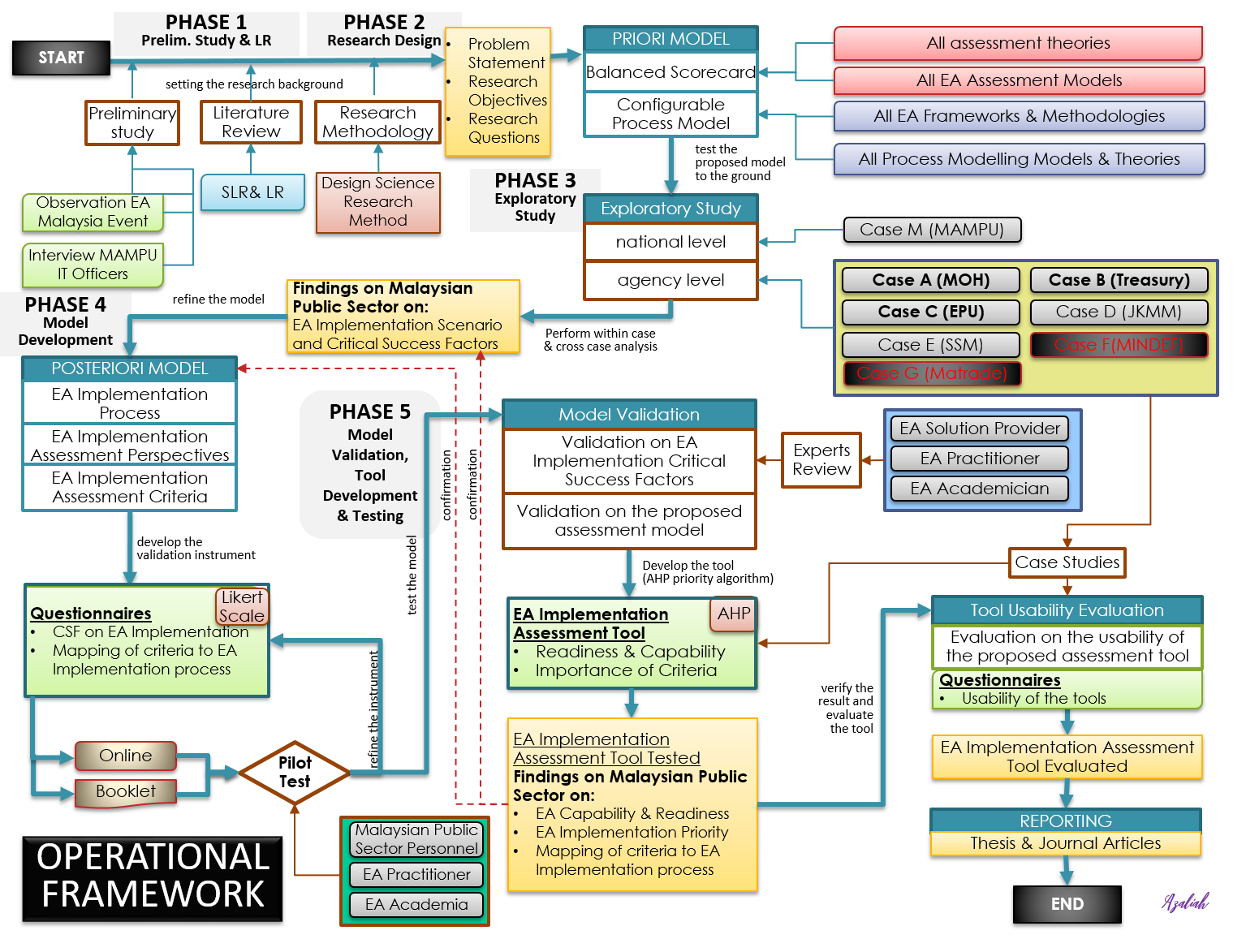
This is my PhD Research Operational Framework (ROF). In other words, my research journey for 3 and 1/2 years from start till end.
So what is takes to come out this ROF? Well a clear Research Methodology is a must
What is the research methodology? I bet every research students already know about this.
But do you really know how to design the best research methodology for your own research?
Well that’s is a tough question.
….and how many times do you change and revise your research methodology and plans?
A research methodology is very important in PhD and Master research/project because it is the record of how the research needs to be carried out. It is generally the part where researchers explain their study. The methodology has greater importance in research. A researcher needs to design the right methodology to arrive at the conclusion of the problem.
A research methodology or involves specific techniques that are adopted in the research process to collect, assemble and evaluate data. It defines those tools that are used to gather relevant information in a specific research study. Surveys, questionnaires and interviews are the common tools of research.
In a simple way, how do you introduce a research methodology? Well, this is the base, as long as you follow these FOUR steps well you are in the right track. What you need to do is just to explain in details, to the very extreme details without any dispute…(yes I am serious).
Step 1: Explain your methodological approach. Begin by introducing your overall approach to the research. …
Step 2: Describe your methods of data collection. …
Step 3: Describe your methods of analysis. …
Step 4: Evaluate and justify your methodological choices.
Since I am from Information System domain and I choose to conduct qualitative and quantitative research, my favourite reference books in Research Methodology are:
Saunder, M., Lewis, P., & Thornhill, A. (2012). Research Methodology for Business Students. England: British Library.
Creswell, J. W., & Creswell, J. D. (2017). Research design: Qualitative, quantitative, and mixed methods approaches. Sage publications.
Plus of course, you should read also as many reference books to make you understand better
My advice:
- Choose the approach that suitable with your ability and nature (liking)
- Of course, the approach must fit with the research problem (so decide early, how you want to solve that research problem)
- Find a doable and possible method with accessible data collection. Without empirical data, it is though
- Be flexible with the research plan (change is constant in research)
- Always have plan A,B,C….even Z
- Be quick to adapt and respond if you plan didn’t work
- Again always have a backup plan and in fact backup data.
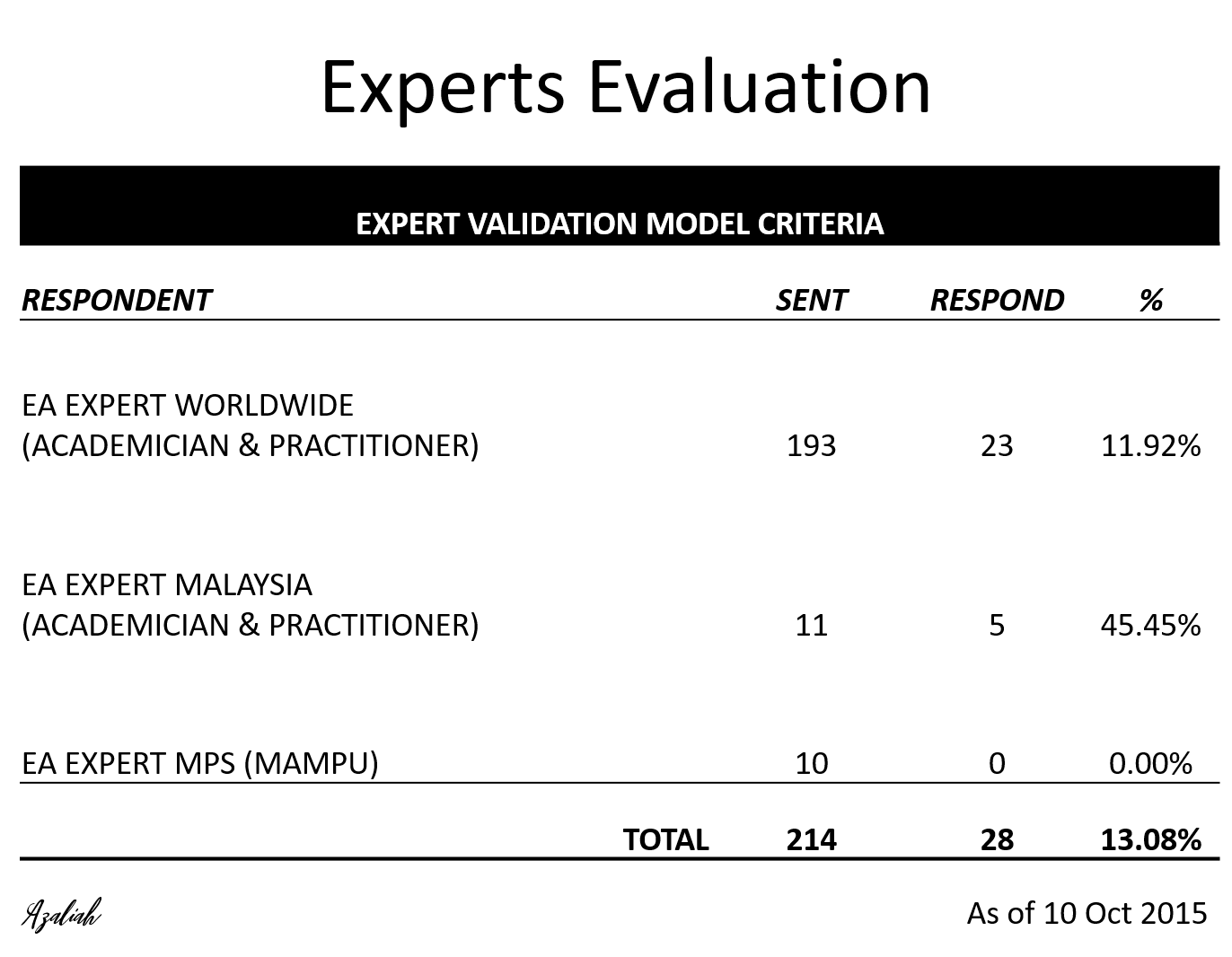
This is what I mean to collect more data (refer the above figure)
My study requires the experts to validate the findings, and out of three categories of experts only two categories respond with 12% and 45% respond rate, however, I don’t worry much because the % is sufficient (also because this is mixed-method study, hence I still have other quantitative data to support my findings). Also, the experts’ criteria for these three categories are at the same level of expertise, therefore the results are valid though ONE group never responded to my evaluation questions.
So, in doing research (PhD), again, don’t be stress, trust, sad if the respondent didn’t respond, let it be. You have any other potential respondents (that’s why planning and research method is very important at the early stage, you will know how to act when this situation occurs). Always have a backup plan and backup data (it is better to collect more, not that too much-but just enough to compensate if anything happened when you want to analyse the findings later)
I think enough for now, I believe there are many more tips and resources on research methodology that you can get from other researchers and experts out there. Till then, if you want to discuss or tips on this topic don’t hesitate to email me at azaliah@utm.my
p/s: that ROF is not publishable anywhere. For reporting purposes in the thesis that ROF was redesigned into a clear, concise and comprehensive diagram. That ROF was a ‘wallpaper’, in front of my study desk..
Sharing my knowledge and experience~Lets learn from each other
by nurazaliah | May 10, 2020 | HowTo, PhD, research
1. Treat an online course like a “real” course.
When it comes to online classes, you need to have the discipline to sit down and say, “I am going to work on this,” as well as the dedication to actually follow through. Though you can be flexible as to when you choose to complete your work during the week, you can’t put it off indefinitely.
One of the easiest ways to ensure follow-through is to remember that you are paying to take this online course, just as you would for a traditional, in-person class. You must “show up” if you’re going to get real value out of your class. Treat your online classes the same way you would a face-to-face class—or, better yet, a job—and you’ll be off to the right start.
2. Hold yourself accountable
Set goals at the beginning of the semester, and check-in with yourself weekly. In a traditional classroom setting, you’ll often receive verbal or visual reminders of an assignment’s upcoming due date. But without a professor actively reminding you, it’s up to you to make sure you’ve allotted enough time to complete the work so you’re not starting an assignment the day before it’s due.
If you’re having trouble holding yourself responsible, pair up with a fellow classmate, or enlist the help of a spouse or friend to check in as an accountability partner. By being organized, proactive, and self-aware, you can get the most from your online class even when life outside of school becomes chaotic.
3. Practice time management.
The flexibility to create your own schedule is often one of the biggest appeals of taking online classes. But that freedom can also be detrimental if you do not have solid time management skills. Without them, you might easily to find yourself cramming before classes or handing in subpar assignments.
Though how you manage your time will depend on your schedule, learning style, and personality, here are some universally valuable tips to help you practice and improve your time management skills:
- Look at the syllabus at the start of the semester and make note of major assignments. Mark them on a calendar you check regularly so you know what workload is coming in the weeks ahead. Don’t forget to factor in prior commitments that may interfere with your regular study schedules, such as weddings or vacations, so you can give yourself enough extra time to complete assignments.
- Create a weekly schedule that you follow, designating certain hours each week to read, watching lectures, completing assignments, studying, and participating in forums. Commit to making your online coursework part of your weekly routine, and set reminders for yourself to complete these tasks.
- When working on your assignments, try time-blocking, allotting yourself a certain amount of time for each task before moving on to the next one and setting a timer to keep you accountable.
- Check-in periodically throughout the term, and look at how you’re spending your time. Ask yourself: How much time am I dedicating to course reading and assignments? Am I regularly underestimating the time it’s taking me to get things done, forcing me to cram the nights before the exams? A little self-reflection and adjustment can go a long way.
4. Create a regular study space and stay organized.
Set up a dedicated learning environment for studying. By completing your work there repeatedly, you’ll begin to establish a routine. Whether your workspace is your kitchen table, a library, or the corner booth in a local coffee shop, it’s important to determine what type of environment will work best for you. Experiment to discover which type of setting boosts your productivity. Wherever you choose, make sure there’s high-speed internet access so you’re not trying to take an online course over a lagging connection.
Setting up a regular workspace or office will also help you to stay organized. Knowing exactly where important dates, files, forms, syllabi, books, and assignments live will help keep you on track towards hitting your goals. When setting up your study space, make sure you:
Have a high-speed internet connection
Have the required books, materials, and software for the course
Have headphones for listening to lectures or discussions (especially important in shared spaces)
5. Eliminate distractions.
From Netflix to social media to dishes piling up in the skink, you’ll be faced with many distractions that can easily derail your studies. The best online students know how to lessen these distractions and set aside time to focus.
Exactly how much of a challenge these distractions will prove to be will depend on your own unique personality and situation. Some might find that they can tune out a noisy home by listening to music. Others might choose to work from a local coffee shop or library to eliminate their urge to multitask at home. Ultimately, you will need to find a strategy that works best for you.
Regardless of where you choose to work, consider turning your cell phone off to avoid losing focus every time a text message or notification pops up. And if you’re still having trouble resisting the temptation to check your email or surf the web, try downloading a website blocker. Using applications like Cold Turkey and Freedom can help eliminate distractions by blocking the apps or websites that tend to compete for your attention, such as Facebook and Twitter.
6. Figure Out How You Learn Best
Once you’ve established where you’ll learn, think about when and how you accomplish your best work. If you’re a morning person, make time to study first thing. More of a night owl? Set aside an hour or two after dinner to cozy up to your computer. If the kids require your morning and evening attention, try to carve out a study session mid-day while they’re at school. Brew your usual cup of coffee, put on your go-to playlist, and do whatever you need to get into the zone and down to business.
Not everyone learns the same way, so think about what types of information help you best grasp new concepts and employ relevant study strategies. If you’re a visual learner, for example, print out transcripts of the video lectures to review. Learn best by listening? Make sure to build time into your schedule to play and replay all audio- and video-based course content.
7. Actively participate.
Participate in the course’s online forum to help you better understand course materials and engage with fellow classmates. This might involve commenting on a classmate’s paper on a discussion board or posting a question about a project you’re working on. Read what other students and your professor are saying, and if you have a question, ask for clarification.
Make sure you are checking in as often as you can, too. The flexibility of online learning means that if you have 30 minutes before dinner plans, you could squeeze in a discussion response around your schedule. Set a goal to check in on the class discussion threads every day.
And if you do feel yourself falling behind, speak up. Don’t wait until an assignment is almost due to ask questions or report issues. Email your professor and be proactive in asking for help.
8. Leverage your network.
Online classes may sometimes make you feel like you are learning on your own, but this couldn’t be further from the truth. Most online courses are built around the concept of collaboration, with professors and instructors actively encouraging that students work together to complete assignments and discuss lessons.
Build relationships with other students by introducing yourself and engaging in online discussion boards. Your peers can be a valuable resource when preparing for exams or asking for feedback on assignments. Don’t be afraid to turn to them to create a virtual study group. Chances are good that they will appreciate it just as much as you will.
by nurazaliah | Dec 4, 2018 | PhD, research, scholarship
Project Description
Applications are invited for a fully-funded three year PhD to commence in October 2019.
The PhD will be based in the Faculty of Business and Law, and will be supervised by Professor Alessio Ishizaka and Dr Giovanni Pino.
The work will look at:
-developing a state-of-the art review of existing data-driven multi-criteria decision methods;
-developing a data-driven multi-criteria decision method based on sentiment analysis;
-validating the method in a marketing context.
Project description
It is well known that optimal decisions are fundamentals for companies but also for individuals. Thus, it is not surprising that multi-criteria decision analysis has undergone a considerable expansion in recent years (Figueira et al. 2016), as a large number of methodologies have been developed and used in multiple contexts (lshizaka and Nemery 2013). However, these methods require a direct input from the decision-maker. If a decision-maker is unavailable, the multi-criteria decision method cannot be used. Furthermore, if the decision applies to a large group of people (e.g. which product to launch on the market), it is unlikely that a single decision-maker can represent all the parties. It is, therefore, important to develop new data-driven techniques based on secondary data, which do not require a direct input of a decision-maker.
To this end, we propose to use sentiment analysis to extract consumer preferences from social networks. Previous research has investigated how multi-criteria ratings allow consumers to assess whether or not a product or a service matches their expectations. However, previous research has rarely investigated how companies may employ such ratings to develop new products or services (Lin 2018). In particular, very little effort has been made so far to assess whether consumer emotions, as expressed through text, images, or videos, on the social media, may provide guidance for multi-criteria decision making related to the development of new products and services (Jannach et al. 2014). This research aims to enhance the field of multiple criteria decision analysis by incorporating sentiment analysis from social media.
The new methodology will be validated with a marketing case study. Secondary data will be collected from social media, which has two advantages: i) individuals can express themselves freely, and ii) data is available in large quantities. Multi-criteria decision-making literature (Bous et al. 2010) shows that consumers consider a variety of attributes in a holistic manner to arrive at a decision compatible with their preferences. Thus, because multiple attributes shape consumer decisions to adopt or resist new products, companies could benefit from a decision method that considers these attributes and their relative importance. Such a method may, in fact, help them design or improve different aspects of their offerings.
Entry Requirements
General admissions criteria
You’ll need a good first degree from an internationally recognised university (minimum second class or equivalent, depending on your chosen course) or a Master’s degree in an appropriate subject. In exceptional cases, we may consider equivalent professional experience and/or qualifications. English language proficiency at a minimum of IELTS band 6.5 with no component score below 6.0.
Specific candidate requirements
Successful candidates should demonstrate a significant interest in social media marketing and Internet technologies.
How to Apply
We’d encourage you to contact Professor Alessio Ishizaka (alessio.ishizaka@port.ac.uk) to discuss your interest before you apply, quoting the project code.
When you are ready to apply, you can use our online application form and select ‘Business and Management’ as the subject area. Make sure you submit a personal statement, proof of your degrees and grades, details of two referees, proof of your English language proficiency and an up-to-date CV. Our ‘How to Apply’ page offers further guidance on the PhD application process.
https://www.port.ac.uk/study/postgraduate/postgraduate-research/how-to-apply
If you want to be considered for this funded PhD opportunity you must quote project code BUSM4510219 when applying.
Funding Notes
Successful applicants will receive a bursary to cover tuition fees at the UK/EU rate for three years and a stipend in line with the RCUK rate (£14,777 for 2018/2019). As part of the bursary the Faculty of Business and Law may fund fieldwork expenses (currently £2,000) over the total period of PhD study. We also offer funding to attend conferences (currently £450), training (currently £450), and a work-based placement (currently a maximum of £3,000 tied up to the period of 12 weeks).
References
Ishizaka, A., and Nemery, P. (2013). Multi-Criteria Decision Analysis. Chichester (United Kingdom), John Wiley & Sons Inc.
Jannach, D., Zanker, M., and Fuchs, M. (2014). “Leveraging multi-criteria customer feedback for satisfaction analysis and improved recommendations.” Information Technology & Tourism 14(2): 119-149.
Lin, K. (2018). “A text mining approach to capture user experience for new product development.” International Journal of Industrial Engineering 25(1): 108-121.
—
—–8<———————————
Prof Dr Alessio Ishizaka
Professor in Decision Analysis
University of Portsmouth
PBS, Operations & Systems Management
Portsmouth PO1 3DE
United Kingdom
Tel: 0044(0)23 9284 4171
Email: Alessio.Ishizaka@port.ac.uk
Webpage:
http://www.port.ac.uk/operations-and-systems-management/staff/alessio-ishizaka.html
by nurazaliah | Jul 12, 2018 | PhD, UTM
ATTENTION TO ALL UTM STUDENTS
For now onwards, UTM has introduced a new format for UTM Thesis. Apart of a thick bulky but yet a classic elegant thesis cover, now we have a modern and sleek stylish thesis. More or less like a book. So do check the complete thesis format at SPS Website!. Here is the sneak peak.
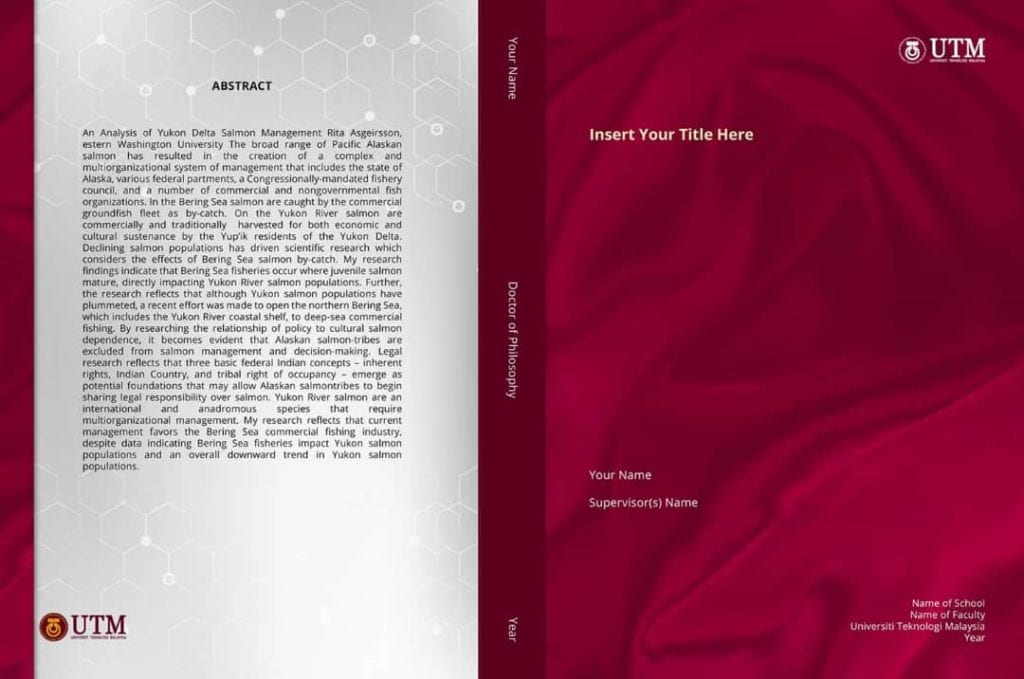
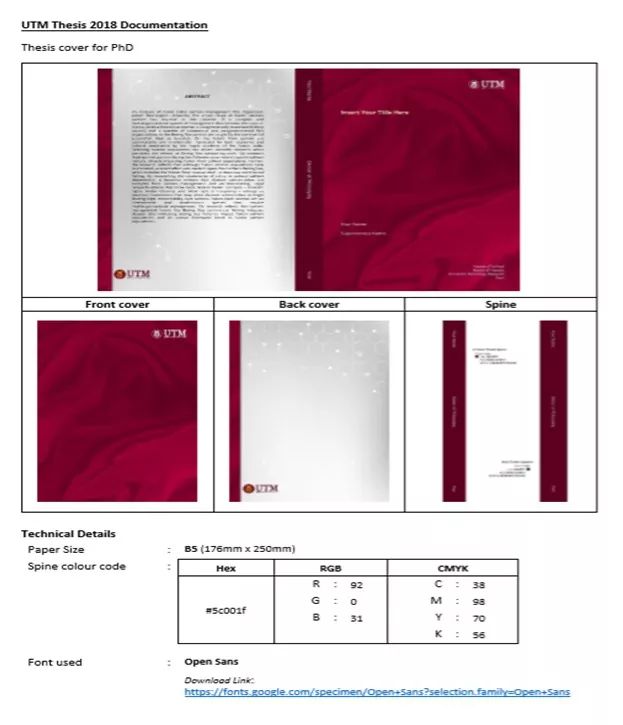
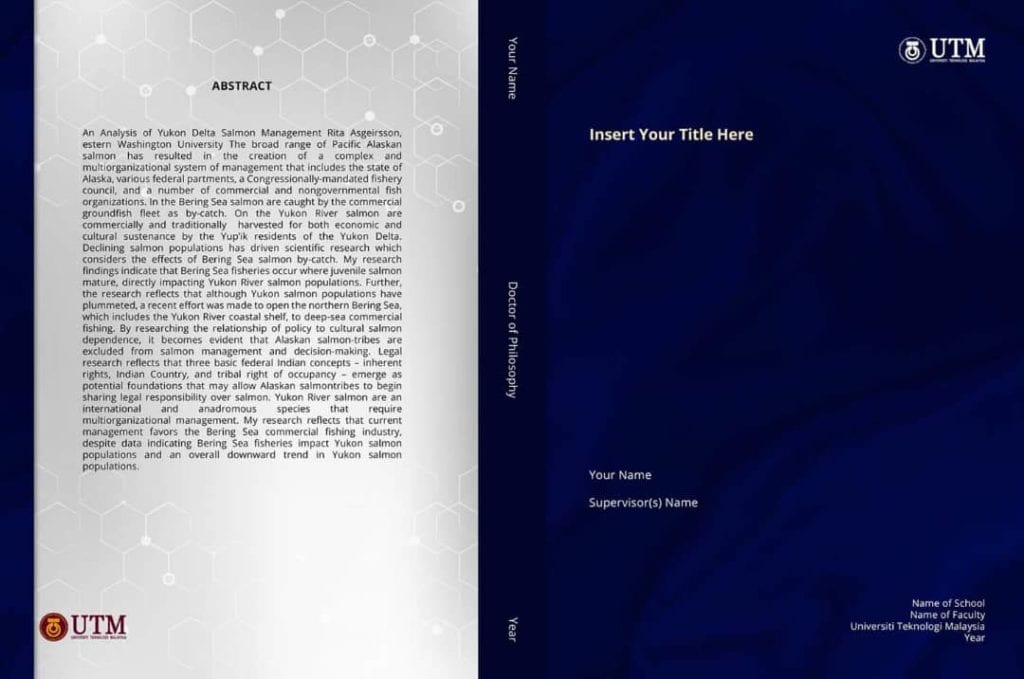
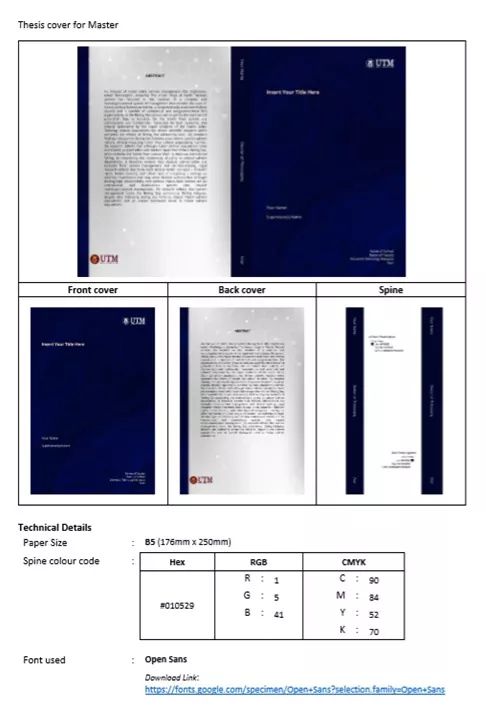
by nurazaliah | Apr 3, 2018 | PhD
Original article by Dora Farkas
Why Smart Students Struggle in Graduate School and What You Can Do About It








Recent Comments